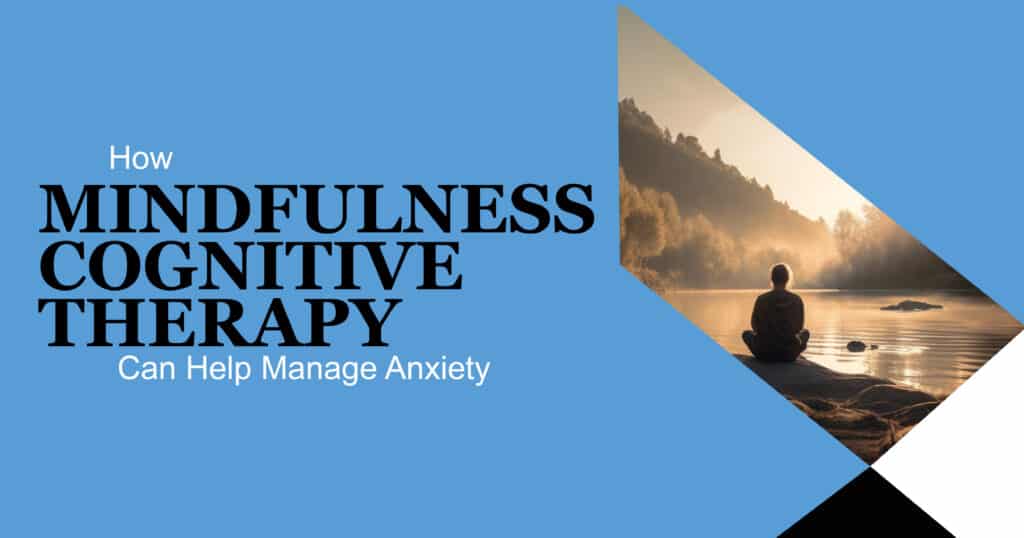In the hustle and bustle of today’s world, where the pace of life seems to only get faster, anxiety has become a familiar, though unwelcome, guest in many of our lives. It’s like a persistent background noise that, at times, cranks up to an unbearable din. But what if there was a way to turn down the volume, to find a moment of peace amid the chaos? Enter Mindfulness Cognitive Therapy (MCT), a beacon of light in the fog of anxiety. This gentle, yet powerful approach blends the ancient wisdom of mindfulness with the structured support of cognitive therapy, offering a life raft to those caught in the waves of anxiety. So, let’s set sail and explore how Mindfulness Cognitive Therapy can help manage anxiety, shall we?
The Essence of Mindfulness Cognitive Therapy
Manage Anxiety with Mindfulness Cognitive Therapy is like a Swiss Army knife for the mind, equipped with tools designed not just to battle anxiety but to understand and coexist with it. It’s about noticing our thoughts and feelings without judgment and learning that, hey, it’s okay to not always be okay.
Key Components of MCT:
- Mindfulness: The art of being present, soaking in the now without letting past regrets or future fears take the wheel.
- Cognitive Therapy: A sidekick to mindfulness, it helps identify and challenge the negative thought patterns fueling anxiety’s fire.
The Journey from Turmoil to Tranquility
Recognizing the Riptides of Thought
Anxiety loves to whisper tales of doom and gloom, but MCT teaches us to recognize these tales for what they are: just thoughts, not prophecies.
Anchoring in the Present
Through mindfulness, we learn to anchor ourselves in the present moment. It’s about finding calm in the eye of the storm, one breath at a time.
Charting a New Course
Cognitive therapy aspects of MCT help us map out our thought patterns, identifying the unhelpful ones and plotting a course towards more supportive thinking.
Techniques That Make Waves
- Breathing Exercises: The anchor of mindfulness, these exercises bring us back to the present, one breath at a time.
- Mindful Observation: Like birdwatching for the mind, this practice involves observing our thoughts and feelings without getting swept away by them.
- The Three-Minute Breathing Space: A quick reset button for the mind, offering a pause to step back and observe what’s happening inside.
The Ripple Effect: Benefits Beyond Anxiety Management
MCT doesn’t just help with anxiety; its waves reach farther shores, touching aspects of life we might not have expected.
- Enhanced Self-Awareness: By becoming more aware of our thought patterns, we gain insights into ourselves and how we interact with the world.
- Improved Concentration: Training our minds to focus on the present helps improve our attention span and concentration in our daily tasks.
- Increased Resilience: By understanding and accepting our anxiety, we build resilience, turning our battles into badges of strength.
FAQs: Sailing Through Common Questions
- Can Mindfulness Cognitive Therapy work for everyone?
- Like any therapy, MCT might not be the perfect fit for everyone, but many find it a valuable tool in their anxiety management toolkit.
- How long does it take to see benefits from MCT?
- The journey is different for everyone, but many report feeling a difference in their anxiety levels within a few weeks of regular practice.
- Do I need a therapist to practice MCT?
- While working with a therapist can provide guidance and structure, there are also resources available for those wishing to explore MCT on their own.
Beyond the Horizon: A New Chapter in Anxiety Management
As our exploration of “How Mindfulness Cognitive Therapy Can Help Manage Anxiety” comes to a close, it’s clear that MCT offers not just a method of managing anxiety but a pathway to a more mindful, peaceful existence. It teaches us that, while we may not control the storms life throws our way, we have the power to adjust our sails.




